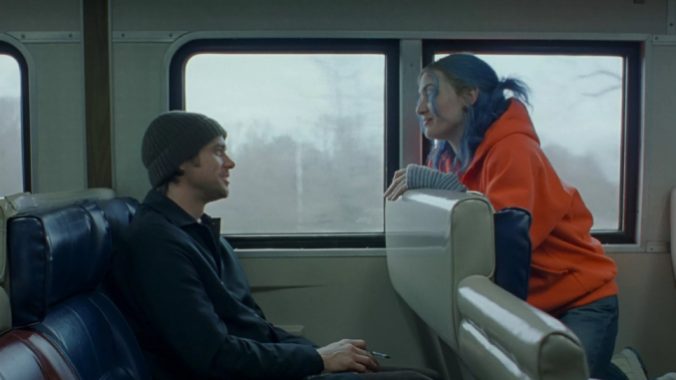20 Years Later, Jon Brion’s Eternal Sunshine of the Spotless Mind Score Remains Unforgettable

It’s been 20 years since the world met Joel and Clementine, the ill-fated lovers of Eternal Sunshine of the Spotless Mind, on a train departing Montauk. From the pen of Charlie Kaufman (Adaptation, Being John Malkovich), the cerebral 2004 romance enters the pain-riddled psyche of Joel Barish (Jim Carrey) as he undergoes a hot new procedure to have his brain scrubbed of all memories of his turbulent relationship with his ex-girlfriend, Clementine Kruczynski (Kate Winslett). Surreal lighting design and rose-colored montages pull off Eternal Sunshine of the Spotless Mind’s rich emotional core, but it’s the film’s score, by Jon Brion, that unveils a deeper understanding of our main characters, giving a conduit into, in particular, Joel’s psychological inner workings.
In his compositions, Brion combines impassioned strings and electronic production to translate a character’s mental landscape into an evocative sonic profile. Eternal Sunshine is no exception, and it marks the first of Brion’s two scores for a Kaufman screenplay. Brion also composed music for Synecdoche, New York, where he, once again, excelled in bringing sound to a surrealist representation of a character’s mind; in Eternal Sunshine’s case, Brion captures post-breakup Joel in awake and sedated states—withdrawn in the former, disoriented in the latter, aching in both. To make up for the character’s lack of spoken transparency about his feelings—something Clementine points out—Brion’s score becomes key for bringing Joel’s thoughts to the surface.
No track better exemplifies the intricacies of Brion’s soundscapes than the film’s “Theme,” the first music we hear as a groggy Joel rises from bed and shuffles to the nearest train stop, where he is forced to trudge through a crowd of doe-eyed riders with store-bought bouquets celebrating Valentine’s Day 2004. Just like Joel’s journey, the theme leaves us in a state of flux: The track’s piano and resonant bassline evoke an unshakable melancholy, yet warbling electronic oscillations and occasional blithe woodwind melodies bring out glimpses of joy. The theme doesn’t define a clear emotion at the beginning of the film, leaving us in the dark about how its story will unfold.
Over the course of the movie, Brion builds on the emotional intensity of watching two characters rediscover their love and struggle to cling onto their fading memories—longing, regret and even disorientation are strung together through grand orchestral arrangements, like the gloomy piano track “Row” and the wistful “Phone Call,” a standout for Brion’s rare use of guitar in Eternal Sunshine. Despite its great emotional depths, Brion’s score avoids falling into a single lane of despondency, with many cheery songs reminding us of the couple’s past love, and even sometimes reminding us of Eternal Sunshine of the Spotless Mind’s fantastical concept.
-

-

-

-

-

-

-

-

-

-

-

-

-

-

-

-

-

-

-

-

-

-

-

-

-

-

-

-

-

-

-

-

-

-

-

-

-

-

-

-








































